An outdated historical symbol, a source of pride, a sign of 'Empire', or a marker of 'modern, diverse Britain'? What do you see when you look at the Union Jack?
In recent weeks, YouGov’s nationally-representative poll of British public opinion discovered that the UK populace was considerably more likely to associate the Union flag with “Empire” (63%), than with a “modern, diverse Britain” (just 36% make this association).
To get your comment on this contrast, across two days we invited participants to enter two conversations around the symbolism of the flag in Labs.
First, to talk about its effectiveness as an emblem of a 'modern, diverse Britain'; and second, to extent to which the flag is a symbol of the British Empire – a remnant of the 19th century.
Hundreds of you clearly felt compelled to talk about this topic. And both of these debates over the flag’s iconography flagged up the differences in your insights and perspectives.
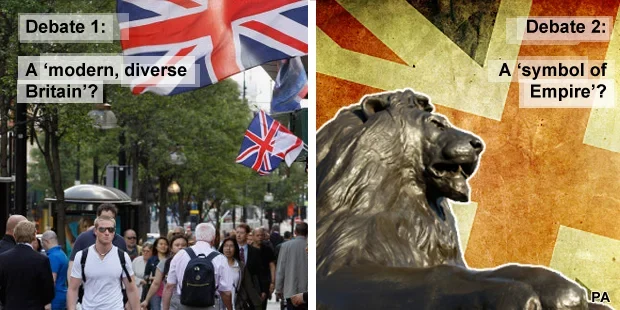
Here's how these two days of discussion panned out...
Debate 1: How much, if at all, do you associate the Union Flag with a 'modern, diverse Britain?'
On our first day of discussions on the symbolism of the Union Flag, more participants said they thought the flag does stand for “modern, diverse Britain”, than those who don't. Here were the prevailing arguments on either side of the debate from those who took part.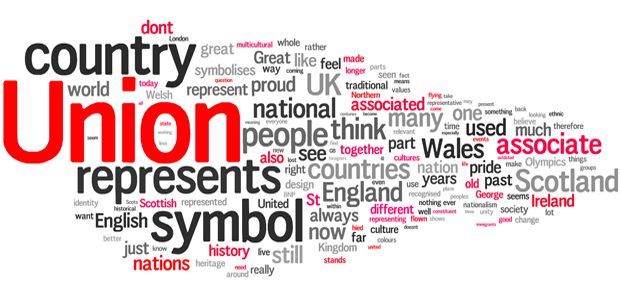
Yes, the flag means 'modern, diverse Britain' to me
Argument 1: The Union Flag represents a diverse people!
“It represents the multiple nations of Britain. By definition therefore it is a symbol of diversity and multiculturalism” Anon

“It is the flag under which we can, and should, all unite. In evoking the past of the United Kingdom it also represents its inherent national diversity in the unity of different flags in one” Anon
“The flag represents the country and therefore every UK citizen” Anon
“The very design of the union flag symbolises diversity. That hasn't changed” Andy G, London
“It represents four nations who are diverse and should continue to be one” Richard R, Neath
“For a hundred years or more, it has been the flag of many diverse peoples” Chris P, Cheltenham
“Due to the Jubilee and the Olympics, people are thinking more about this country as their land and identifying more with it. Also, many immigrants are now embracing the Union Jack as a way of demonstrating their Britishness” Anon
“We have been a country of modernity and diversity ever since we were invaded and we invaded others; cultures and experiences absorbed and innovated. It keeps us fresh and open!” Bee, Pamber Heath
Argument 2: Because it’s the flag we’ve got
“It is a great symbol and everyone should be proud of it” Anon
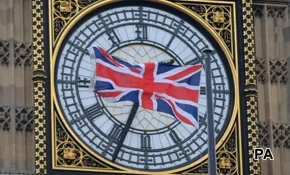
“It represents the UK and
UK citizens should honour it”JB, Hants“The flag represents Britain, whatever Britain is” Anon
“Britain is indisputably a state. Every state needs a logo – a simple, non-written symbol that everyone understands signifies that state. The Union Flag does that job for the UK, and it would be hard or impossible to find another symbol so recognisable as meaning Britain. Why try? It's just a logo, we have to have one, we have got one, and it's the Jack. Why not?” Andy, Worcester
“The Union Jack is the symbol of Britain, and always will be, regardless of how modern or diverse Britain is – it's still Britain” Anon
“It’s our national flag and should be a sign of our united Britain” Anon
“The union flag is a symbol of our nation TODAY – hence it is associated with Britain in modern times” CGB, Lancaster
Argument 3: It stands for the UK’s modern values
“It reflects all the constituent nations; it has heritage from the Empire and Commonwealth – it represents the values of British culture” Anon
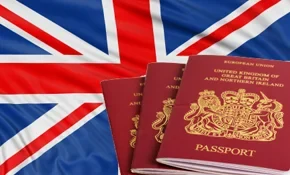
“This is a symbol of the greatest country in the world that offers refuge and opportunity to everyone. It is not always appreciated but if it ever lost then its true value will be realized” John B, Mansfield
“It is a symbol of union, not oppression in the world. WWII isn’t that long ago, and Britain stood alone against the dictators – a beacon of hope to people from many lands and races” Rob, Scotland
“The Union Jack symbolises what this country stands for and we should take pride in that” Anon
“Freedom of speech, freedom of sexuality, diversity, religion, culture, creed …I feel all that comes under this flag” Anon
“It reflects on how Britain came to be: incorporating diverse people, countries and views” Anon
Argument 4: Union Flag = “Cool Britannia!”
“Very fashionable at the moment, plus a symbol of current 'hot topic' events e.g. Jubilee and Olympics” Anon
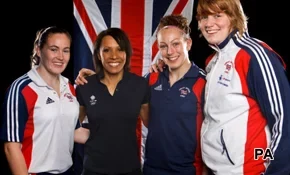
“I find the Union Jack image very cool to look at, not just in this country but also abroad where even in other countries’ films you will see a Union Jack on a person’s bedroom wall or on their clothing” Alan, Orpington
“You see it in lots of different contexts. It is seen as quite trendy” Anon
“The Union Flag is the national flag, representing the UK for more than two centuries, and still used today on websites almost universally as the icon for UK or the English language: it is, literally, iconic” James, Perth
“It's a gorgeous-looking flag, and it features heavily in many modern interior design products, as an example. It's still relevant, and people are still proud to be British, or connected with Britain in some way – they want to 'show off' their Union Jack” Anon
“More people are flying the flag now than when I was young” Anon
No, the flag doesn't mean 'modern, diverse Britain' to me
Argument 1: The flag speaks of an 'old-fashioned' Britain
“The flag is more about the past” Billy, London
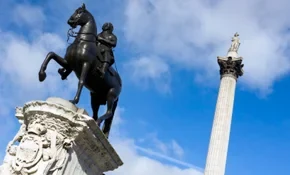
“It feels like a symbol of colonialism” Mark, Kidsgrove
“The flag is representative of a time when Britannia ruled the waves. Admiral Horatio Nelson. Sir Winston Churchill. Today, the Union Flag has become the symbol of mediocrity. Politicians saying that ‘they're working hard for us all’” Anon
“It has been associated with centuries, generations, of slavery, bullying smaller and less developed countries; and does not represent the modern country – of many different peoples” Alastair, Scotland
“Union Jack has existed far before Britain was classed as a diverse country, and is a proud symbol of British heritage” Paul, London
“I think Britain is more multi-cultural now and whereas in the past there were other cultures in Britain, they are now recognised as part of Britain. Therefore the flag is now, to me, more representative of the old Britain, where other cultures were silenced, ignored and not treated with respect. I think diversity is good and a dilution of the strong, 'stamp on outsiders' British way is for the betterment of society” Pamela M, N. Ireland
“The Union flag seems to represent an older, more compact Britain, when the majority of its inhabitants came from England, Scotland, Wales and Northern Ireland. And if Scotland does break away then it will no longer be accurate” Anon
“It just looks so old fashioned and fussy… brash, garish, and cluttered. A relic of the 19th century” Dee D, Yorkshire
Argument 2: Has been hi-jacked by far-right politics
“It has been used by far right groups as their symbol of 'purity'” Tim, Blackpool
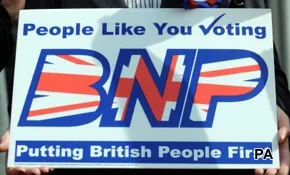
“Too much baggage because the flag has been used by EDL and BNP” Anon
“The Union Jack has been hijacked by nationalistic groups which seek to exclude some British citizens” Anon
“Hooligan symbol around the world” Anon
“I think the Union Jack has been 'hijacked' by right wing parties which are the absolute antithesis of a diverse Britain” Anon
“It unfortunately seems to stand for BNP now, not the country I used to know, I am more likely to turn to the St.George’s Flag, as I do consider myself English more than British” Katy A, Spalding
Argument 3: The Union Flag needs modernising!
“It symbolises historical events which have little relevance to life in Britain today. When Scotland gains full independence we will need a new national flag for what remains of the UK anyway, so I suggest a plain blue field with three stars in a triangle to represent England, Wales and Northern Ireland” Watchman, Torbay
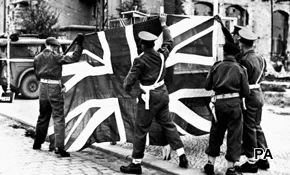
“People hardly ever talk about its meaning or place in Britain now”Anon
“It’s in fashion at the moment (perhaps because of the Queen's Jubilee and the Olympics). But I don't think you can represent a modern country with it” H Moss
“Its present form dates from 1801 which means it is 111 years old – hardly modern” Anon
“It's an historical anomaly and has nothing to do with the multicultural society we have now” Anon
“It is anachronistic. It is associated with Empire. Wales is not represented” Anon
Argument 4: The ‘United Kingdom’ is no longer united
“The Union Jack was supposed to represent a unified United Kingdom. However in an increasingly fragmented UK which now includes a far more diverse range of residents, the Union Jack is rarely used and means very little to people outside of London who feel that they are being ignored by the Government” Anon
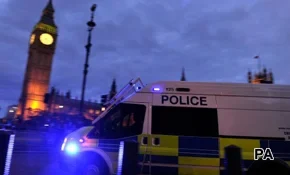
“Britain is not united – nor is it a union” Irene, Edinburg
“I believe that the countries involved in the Union Flag would rather be lone states apart from England. Scotland is already trying to break away and I feel it won’t be long before Wales and Northern Ireland follow suit” Anon
“It doesn't really seem to reflect the community of Britain as it is today. Union is in the meaning of the word ‘union’. The country doesn't seem to be unified at the moment” Twiggy, Cardiff
“A relic of imperialism in the form of a colourful dishcloth. It fulfils the same purpose as gang colours; promoting the segregation of the human race” Jack M, London
Argument 5: It doesn’t resonate with the British public
“One sees it more rarely now” Beverley, Staffordshire

“Used widely in advertising campaigns, but largely unused by citizens in daily life” ST, London
“It appears occasionally as a highlight within modern culture – Geri Halliwell's dress, or the roof of the Mini come to mind, but other than that only really comes out when celebrating the royals, whom I don't think represent the modernity of Britain particularly well” Anthony, Pontefract
“Most people fly the St George flag rather than the Union Jack” Anon
“Most people do not understand the composition of the Union Flag” Anon
So, participants clearly approached the question of seeing the Union Flag as a symbol of 'modern, diverse Britain' with mixed feelings.
But what was the consensus with regards to the flag as at one with the history and iconography of the British Empire?
Debate 2: How much, if at all, do you associate the Union Flag with …'Empire'?
Those who shared their views were almost divided 50/50 on this issue - that said, slightly more people felt that they don't see 'Empire' in the flag, than those who do associate the flag with this.
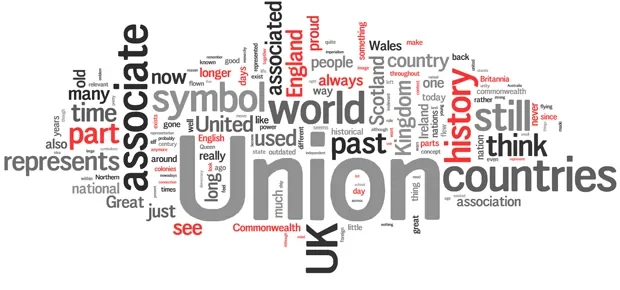
No, I don’t see 'Empire' in the flag
Argument 1: Any association with 'Empire' is outdated
“The Empire is dead and people should get used to that, I mean it's not like it's news!” Anon
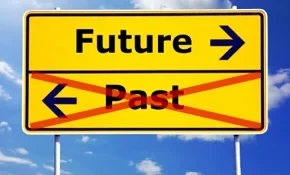
“It isn't relevant in the context of our flag. Even when the empire still existed the flag didn't represent it” Max, Aberdeen
“I don't feel as if I am part of 'The Empire'; I think it is an irrelevant status nowadays” Anon
“It's been a long time since we had an empire. 'Empire' implies we are the ones in charge, yet we are members of the European Union and we are certainly not in charge of that” Anon
“It represented our old colonial past and attitudes” Anon
“It predates and post-dates the height of the British Empire and colonialism”strong> Richard, Notts
“The concept of 'Empire' is a historical one, and not really one that I associate the Union Jack with. The Union Jack is part of the present; 'Empire' is part of the past” Anon
Argument 2: The Union Flag stands for The UK today
“I'm baffled by this question! I associate the Union Flag as being the flag of the United Kingdom. We used to have an empire. Now we don't. Let's move on” Ailsa, Scotland
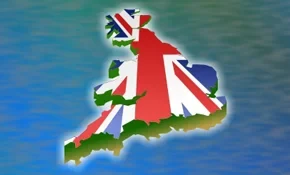
“I see it as the Union Flag from England; Ireland; Scotland and Wales” Julia, Brighouse
“Never think of the Empire. The Flag is our Flag – British” Richard, Leeds
“The Union Jack is eternal. 'Empire' has long gone and faded into the past. For me it represents modern Britain, but if Scotland were to break from the union then a new flag would be needed” Anon
“To me it's just the British flag and not relevant to any country outside of the UK. Being born in the 60s the Empire was already history when I was a child” Ceri, Sussex
“I only associate it with the UK (especially England), as other commonwealth countries have their own flags” Sue, Kent
Argument 3: I associate it with something else
“I associate the Union Jack of the great thing our little island stands for. I think it's evolved from 'Empire' to inclusiveness and compassion” Andrew, London

“That is in the past, and I think with all the commercial activity involving the Union Jack, it's much more associated with the 'Cool Britannia' philosophy” Anon
“Associate with England and Rangers Football Club only” Anon
“I feel no association with the Empire, and so do not connect the flag with 'Empire'. I hate the flag's association with far right politics, which I regret I now have. When I see the flag I take a wary look at who is displaying it…” Michael, Essex
“As a young person, I do not automatically think of the Empire when I think of Great Britain. Also, the Union Jack seems to have been regenerated in recent years to be popular and trendy, a fashionable symbol rather than patriotic” Lucy, Bristol
“I associate it more with modern Britain” Martin, London
Argument 4: We don’t have an Empire!
“What empire?” Anon
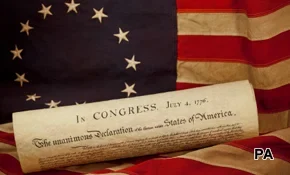
“It is not possible to link the Empire to the Union Jack because it ‘the Empire’ no longer exists. The nations who grew out of the Empire make their own laws and are self-governing and whilst being well able to speak in English, many of the countries speak their own languages within their own parliaments” Anon
“There is no empire to associate the Union Jack with” MED, Birmingham
“I think the idea of 'Empire' is pretty much dead in the water, outdated. Perhaps it has a different resonance for me as I live in Scotland, where the Saltire has much more prominence, particularly with the current discussions about independence. To me, the Union Jack is very much associated with England, rather than with 'Empire'” Anon
“Many ex-colonies include the Union Jack in their own flags” Matt, Co. Down.
Yes, I do see 'Empire' in the flag
Argument 1: It calls up the history of our nations
“A motif that threads through history” Mark, Wirral
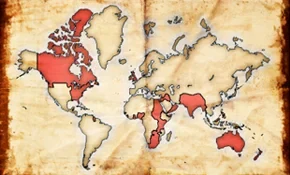
“The flag was created in the 18th Century when the Empire really kicked off. The Empire was known as the one in which the sun never set on the British flag. The image of the flag flying from Toronto to New Delhi and Cape Town really is summoned when looking at the flag” Alexander B, North Yorkshire
“It represents the four countries of the UK and the history behind each part” Pedros, Buckinghamshire
“It was the flag we sailed under or marched with when we expanded our interests around the globe” Trevor, Bath
Argument 2: It's a proud symbol of once-'Great' Britain
“Purely pride” Anon
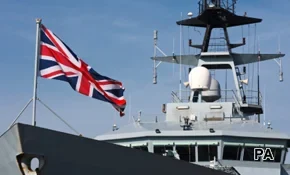
“The Empire made the modern world. Gave undeveloped countries modern infrastructure and of course English, the global language. It is the flag that abolished slavery; made great advances in science and engineering” Gary, Horsham
“The Empire was this country's greatest achievement” Paul, Wallasey
“As a Scot, I see it [as being] created at the beginning of the Empire with the founding of the Union. It benefitted many people in Britain, and the wealth of Britain through the resources looted from the Empire. Many did well, if it had not occurred I would probably be a peasant instead of having gone to University” Mark R, Glasgow
“The 'red white and blue' is such a huge part of the Empire; it’s great to see those colours come alive for events such as the Royal Wedding and Queen’s Jubilee” Anon
Argument 3: It's just a symbol of 'Empire' shame
“The flag was the symbol of the violent British Empire and regime” Kenny, Scotland
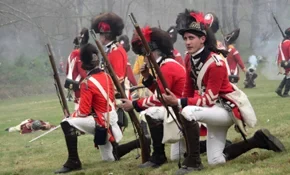
“I see it as old fashioned symbol linked to outdated ideas” Anon
“Adopted by the English as 'their' flag. Not a national flag. Smacks of imperialism which is long gone. I am a proud Scot and proud of the Saltire but not proud of the Union Jack” Sandra, Perthshire
“Nationalism, as embodied in attitudes to the national flag, has no place in a progressive world view that embraces diversity and admits our small island's relative unimportance in present-day global affairs. The so-called 'Union Jack' is a powerful symbol of Britain's imperialistic, expansionist past and its glorification is nothing but an embarrassment” Anon
“I am thoroughly ashamed of our history of 'Empire', and sadly the Union Flag has been used by too many people as an excuse to shout about British superiority” Liz, Wiltshire
“As the home nations gain more distinctiveness and independence, and the national flags become more prominent, the Union Jack is more indicative of a 19th and 20th century United Kingdom than a current one” Graham, Richmond
Argument 4: Actually, the 'Empire' still exists today
&dquo;It is the flag of our nation and has different parts which represent different countries within that nation” Anon
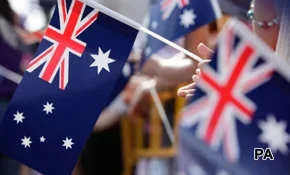
“Because the UK still has a (small) Empire” Paul, Essex
“It's internationally seen like this. Why else would it be on so many 'Commonwealth' flags?” DS, West London
“There is still a flourishing Commonwealth, and 'Empire' still seems to come to mind when thinking about the Commonwealth. Both these subjects make me think of the Union Flag” Keith, Fenlands
“We used to have a large Empire and still have some countries left that we have some sway over” Anon
These conflicting arguments from YouGov participants show in stark definition how thinking about the Union Flag inspires a host of different opinions.
From burning patriotism and a need to champion Britain's imperial history, to the sense that the Union Flag is more of a 'brand' or a logo than a properly representative national flag.
From those who feel proud of the flag's legacy and meaning, to those who feel that the flag harks back to a union that no longer exists; to participants who spoke of what they see as Britain's diverse, progressive values.








